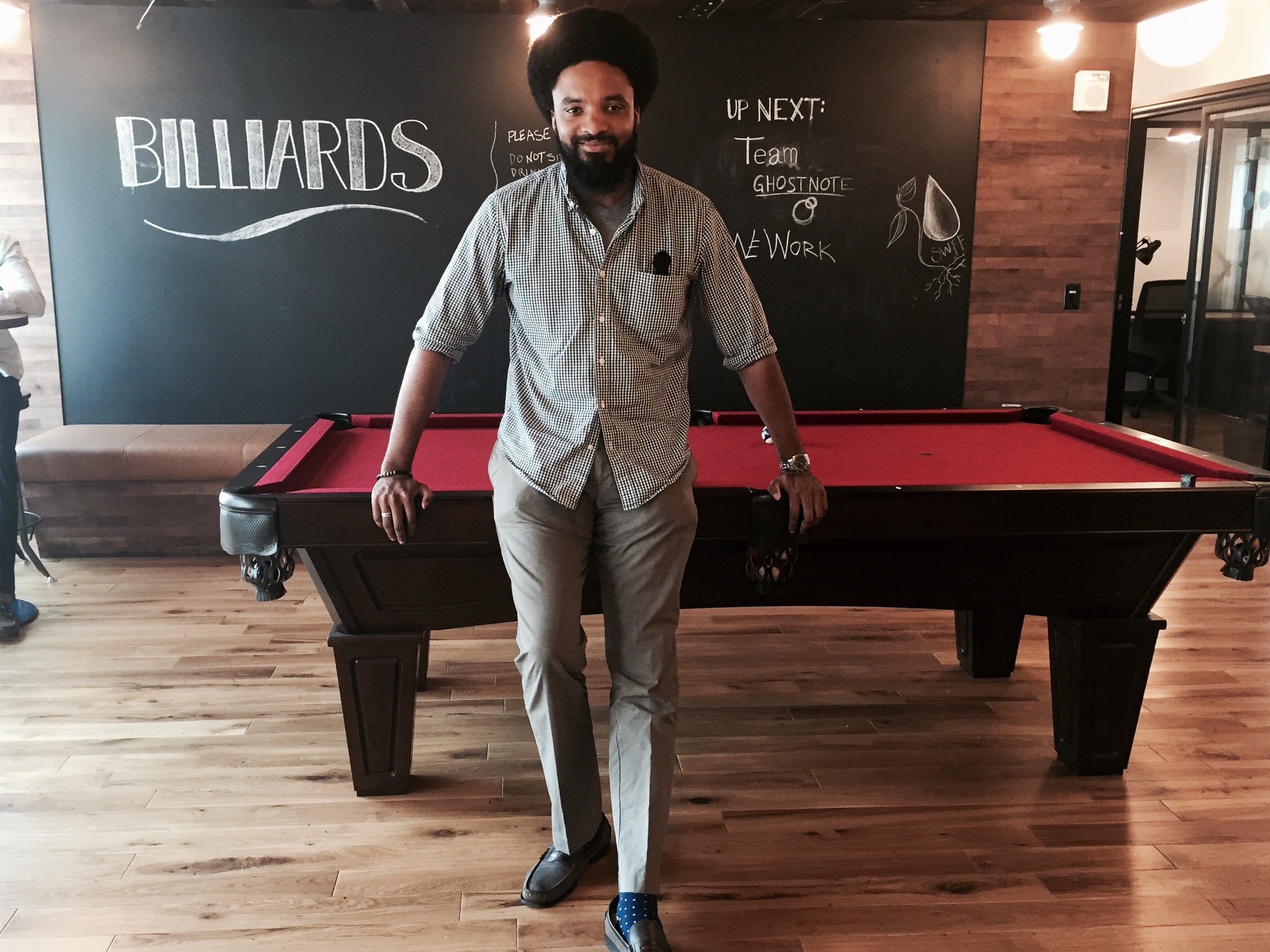 Hi everyone, Amma Marfo here. Two quick things about me that you’ll need to know before we begin:
Hi everyone, Amma Marfo here. Two quick things about me that you’ll need to know before we begin:
(1) I am a reader. I am a library-loving, constant tome-carrying, unapologetic bibliophile. (2) If there’s anyone you will meet who can connect what she’s reading to the world around her, it’s me.
As such, I want to dedicate my time in this space to sharing with you what I’m reading, and how it could inform a budding professional’s daily life.
This month's read, Alice Flaherty's 2010 The Midnight Disease: The Drive to Write, Writer's Block, and the Creative Brain, was a long read for me. It hasn't taken me this long to finish a book for quite some time. However, when I really think about why it took me so long, it brought about a lesson that I wanted to write about here.
I've been very open in this space previously about my advocacy for changing paths. I often use the examples of Ken Jeong, a former medical doctor who transitioned into comedy when he realized it fulfilled him more; Retta did something different after leaving pharmaceutical research to pursue standup comedy and eventually acting. But the trouble with narratives like this is that they invite the idea of pursuing one love/skill/talent over another. But what if it didn't have to be that way?
When I first picked up this book (a bargain acquisition at an outdoor book sale), I expected it to be a musing on creativity and writing, from a fellow creative. It is...and it isn't. In addition to being a writer, Alice Flaherty is also a licensed and practicing neurologist, and her take on how the brain responds to creativity features a take on the topic through both lenses- that of a creative, and that of a medical practitioner. Are you starting to see now why this reader, firmly stationed in the realm of the former, had such a hard time getting through the text- peppered equally with anecdotes from writers and complicated medical terminology?
The worry with the "shifting gears" narrative that we employ, is that it implies that you can only follow one path at once. Flaherty has demonstrated that pursuing multiple paths at once has undeniable benefits. She doesn't have to, on any given day, decide if she's a doctor or a writer- because she's both. Most of the time she's performing in one role at a time, but she is- she can choose to define herself- as both.
Now, is there a case for pursuing one path over another? Of course there is. But the idea that we have to choose one path at a time has its falsehoods, as well. One of the most arresting passages in the book, for me, addressed the reason that we might flee one path in favor of another:
[...] a sense of vocation doesn't guarantee happiness at work. Nor does it guarantee being good at the job. Perhaps it merely gives the possessor a feeling of megalomania, a sense of being in some manner chosen for a higher goal. Sense of vocation as disease. How is vocation related to workaholism, and is hypergraphia a special case of either? To some extent, workaholism is a term others use to describe people who prefer to describe themselves as having a vocation. The others are saying that he couldn't enjoy himself as much as he thinks, that he works to relieve anixety, not for pleasure or a goal. Yet even those without a true vocation never feel only the joy of work without occasionally feeling its terror. When your work is part of who you are, and you feel you are working badly, you become foul to yourself.
Sometimes, the logical thing to do when we have a bad day, bad week, or bad few months, our consciousness drives us to assume that we shouldn't be doing it. And while that could be true, it may also mean that an outlet is needed to balance our time and mindset. And occasionally, that outlet becomes a lifeline, a way to feel more vital in times good and bad. In the best case, our vocation and our "outlet" should be able to coexist as equally essential parts of who we are.
What's more, I appreciated how openly Flaherty shared the degree to which embracing her dual vocations affected her work in each area. She was particularly forthright about how her experience as a writer, and one whose writing was (a) a key part of an ailment, and (b) an avenue by which she got to experience her vocation from the opposite side:
Sometimes I think the hospital psychiatrist judged me too strictly because I was a physician. If doctors' thoughts are perfectly linear, they need- what else?- medicine. Metaphors and heightened imagery are permissible only for poets [...] I miss the days when I had the kind of faith in the scientific method that a nun has in her vows. But now my brain is more permeable to metaphors than it was before.
And when I think about the best benefit that comes from pursuing multiple paths at once, particularly as it pertains to my own life as an educator and a writer (neither of which I could imagine giving up), it is this element that sticks out. When you feel your motivation, inspiration, or spark for life flagging in one area, it could be something in another area that brings you back, re-energizes you. In the absence of that additional area of exploration (or vocation), you may resign yourself to one way of thinking- and no additional means of motivation when that way fails you.
As you ponder the path that your life will take, consider the prospect that there isn't just one path. Maybe the freedom to pursue a "both/and" strategy in your own life, and exploring how those multiple paths could inform one another, could make a seemingly agonizing decision, a little less stressful. One thing's for sure, though- the decision to broaden your path will make your life fuller. So think about it: what could your "both/and" be?











